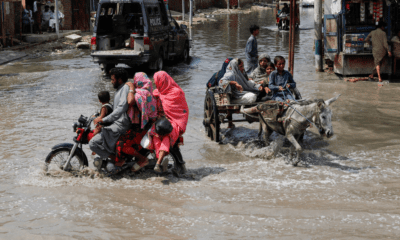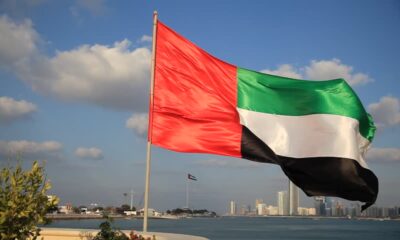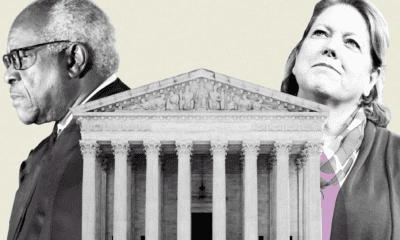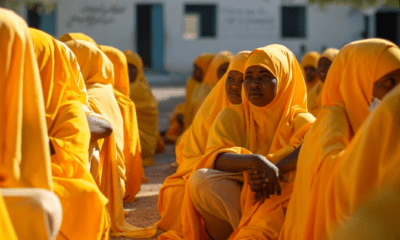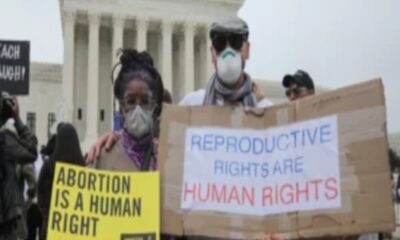Featured
Women’s Rights in the MENA Region: Progress & Obstacles
Published
2 years agoon
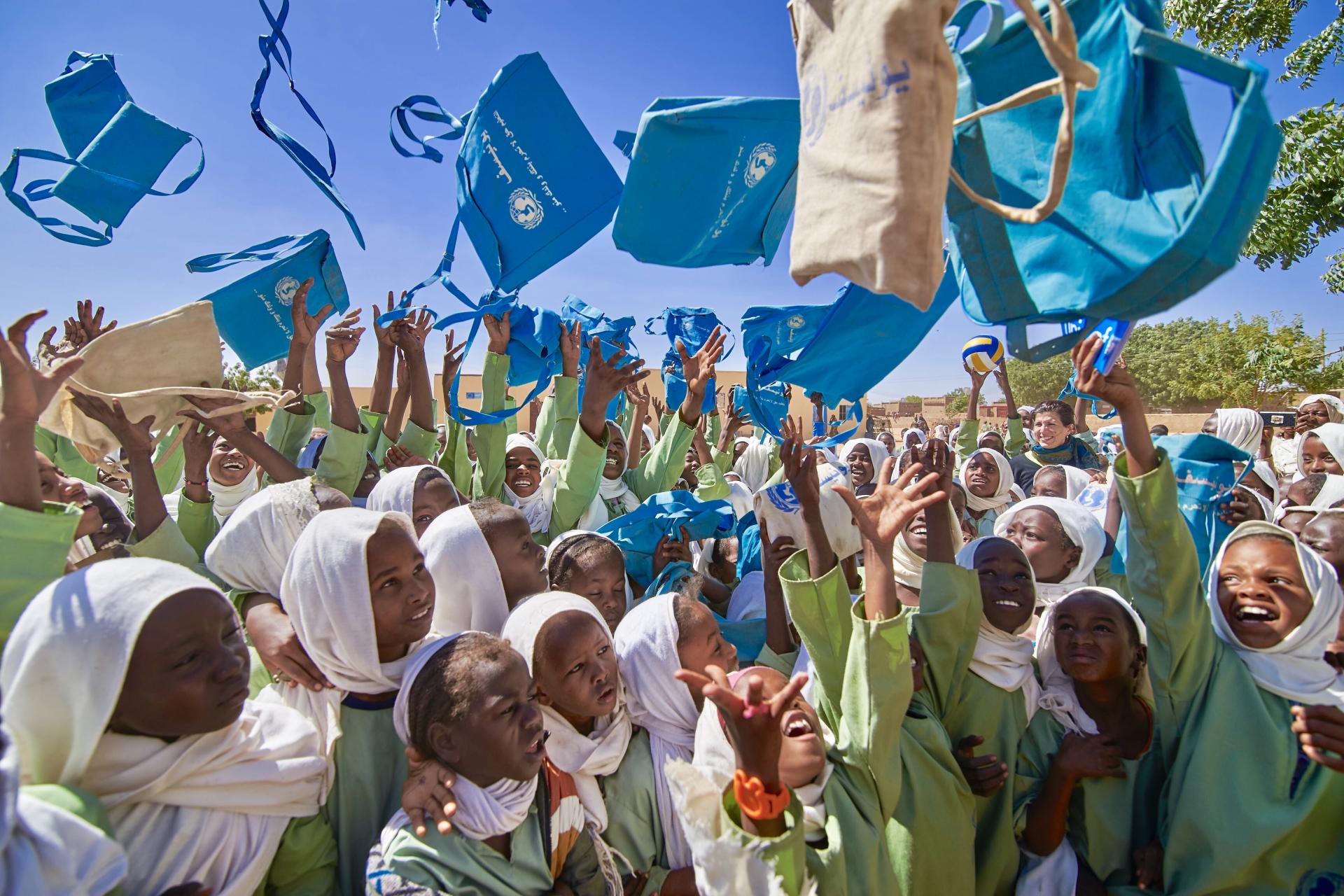
A Background to Women’s Rights in the MENA Region
Gender equality is a fundamental human right and an imperative foundation which lays the groundwork for a peaceful, prosperous and sustainable world. The development of women’s rights in the Middle East and North Africa (MENA) region has seen much progress and obstacles over the past decade. However, the unequal status of women stands out as a particularly challenging problem.
Following “International Women’s Day” last month, this article provides a snapshot of the development of women’s rights in the MENA region as of April 2023. MENA countries include Algeria, Bahrain, Egypt, Iran, Iraq, Israel, Jordan, Kuwait, Lebanon, Libya, Morocco, Oman, Qatar, Saudi Arabia, Syria, Tunisia, United Arab Emirates and Yemen.
The MENA region has a reputation for struggling with gender equality. Therefore, this article focuses on this region. However, it is important to emphasize that the MENA region is not the only place women experience inequality. Gender inequality is also seen in Asia, Africa, Latin America, Europe, and North America. Undoubtedly, women continue to face discrimination and significant barriers to fully realizing their rights worldwide.
Any Progress in the MENA Region?
Governments are developing stronger laws and policies to support women’s rights.
Significant laws, policies, and programming developments have focused on gender equality within the MENA region. Moreover, women’s representation in government has increased.
Many countries in the region have established “national women’s machinery”. This machinery is used in government offices, departments, commissions, or ministries. All these provide government leadership and support in achieving gender equality.
Furthermore, there have been notable improvements in education and health within gender-related indices. There has been an increase in specialized programming to support women’s rights and empowerment in this region.
Women struggle to uphold their rights in places like Palestine. It is international human rights laws and conventions which are helping women in advocating for and strengthening their fight. Since the ratification of the Convention on the Elimination of All Forms of Discrimination against Women (CEDAW) by the State of Palestine in March 2014, civil society organizations and women human rights defenders have publicly advocated for the implementation of the Convention and the passing of a Family Protection Bill, pending since the early 2000s, which would specifically address gender-based discrimination and violence. In turn, this will help to edge women closer towards gender equality in the occupied Palestinian territory.
Women are increasing their role in civil society and advocating their rights
Women are increasing their engagement in civil society. Women’s and youth feminist civil society has started to dominate the political scene in advocating for and securing gains. In Iran, millions of young women took to the street following Mahsa Amini’s death in police custody for improperly wearing her hijab. These women risked their lives to change the system. Many were arrested and beaten and now face the death penalty for speaking out. This demonstrates women’s power in standing up against authoritarian regimes and fighting oppression.
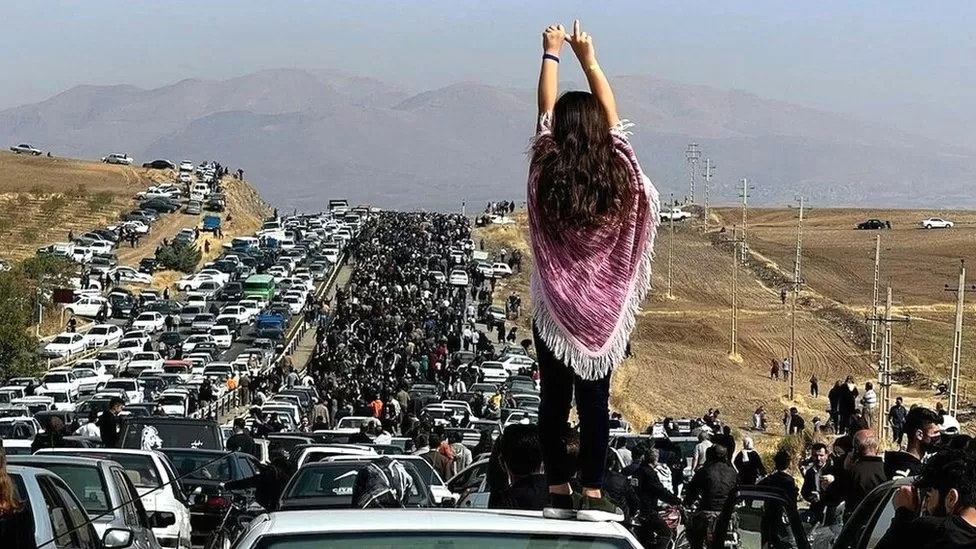
The Iranian government is brutally repressing women’s voices who courageously stand up for their freedom. The UN has called Iran a “gender apartheid” on women.
Read more: Mahsa Amini: Iranian Women Are Leading an Extraordinary Revolution.
Women’s civil society actively engages internationally with the “Women’s Peace and Security” agenda. Remarkably, women activists have testified before the United Nations Security Council. The UN Women highlighted the gender impact of conflict and occupation on women’s rights.
What Obstacles Hinder the Development of Women’s Rights in the MENA Region?
Women face many inequalities within the MENA society, correlating them as second-class citizens with little to no protection from violence. The COVID-19 pandemic has compounded existing inequalities. Moreover, factors significantly reducing space for constructive civil society engagement with governments include ongoing conflict, the revival of extremist religious groups, and increased political turmoil. These international crises created many setbacks in passing long-term legal change.
Poverty & gender-based violence
The 2022 global poverty update from the World Bank reports that the MENA region is the only place worldwide where the extreme poverty rate increased between 2010 and 2020. Poverty has a detrimental impact on women’s rights.
Gender-based violence is also one of the main challenges facing women in the region today, with devastating effects on their health and well-being and their economic and civic participation.
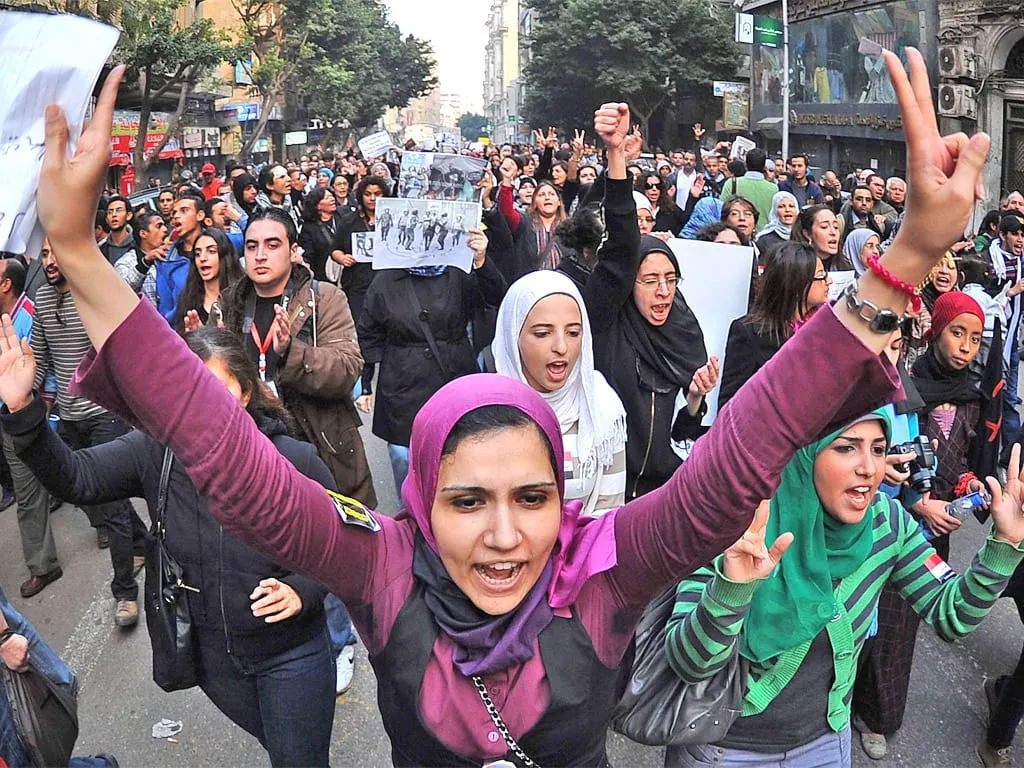
Read more: Female Genital Mutilation in Somalia Reflects Deep-Rooted Gender Inequality.
A striking example of gender-based violence was in 2022 when the Israeli forces shot dead Al Jazeera’s journalist Shireen Abu Akleh in the occupied West Bank. Abu Akleh, a longtime TV correspondent for Al Jazeera Arabic, was killed on the 11th of May 2022 while covering Israeli army raids in Jenin in the northern occupied West Bank.
Read more: Who is Shireen Abu Akleh?
Women have no right to nationality in the MENA region
The MENA region has the highest concentration of gender-discriminatory nationality laws. An estimated 50% of the 25 countries in MENA deny women equal rights to pass nationality to their children.
Algeria is the only country in the region with nationality laws upholding complete gender equality, including women’s right to confer nationality on their children and noncitizen spouse on an equal basis with men. Thus, gender discrimination in nationality laws is one of the primary causes of statelessness in the MENA region, in addition to causing several other human rights violations.
Lebanon, Kuwait, and Qatar deny women the right to confer nationality to their children and spouses in all circumstances. Other States, including Bahrain, Jordan, Libya, Oman, Saudi Arabia, Syria and the United Arab Emirates (UAE), deny women the right to confer their nationality to children in most circumstances.
Read more: World Leaders Remain Silent Over Human Rights Violations in the UAE.
Malnutrition in women and girls increases by 25%
Malnutrition in women and girls increased by 25% in crisis-hit countries in the MENA region between 2020-2022. Over a billion women and adolescent girls are malnourished in the world. This has detrimental health, economic and well-being impacts. Most women and girls affected by this statistic live in the MENA region. Both local and global crises in 2023 could exacerbate the development of women and girls living there. Rising poverty and inequities increase the chances that people will turn to cheap, ultra-processed, unhealthy foods.
“Addressing malnutrition in women and girls is essential to reduce the gender health gap”
Amira Ghouaibi, Project Lead, Women’s Health Initiative, Shaping the Future of Health and Healthcare, World Economic Forum.
Therefore, the world is making slow progress. Issues like soaring food prices, climate change and the lasting impact of the COVID-19 pandemic risk making the nutrition crisis an even more significant problem in 2023. Nutrition is a widely overlooked issue; coordinated access and policy intervention are urgently needed.
Read more: Children’s Rights in Yemen Are Teetering on the Edge of A Catastrophe.
Survey Findings Provide Unprecedented Insights into Gender Attitudes in MENA Region
Despite incremental progress and the advancements mentioned above, gender attitudes across the region continue to fall behind internationally recognized standards.
The opinions and attitudes of citizens across the MENA region were recorded in the latest Arab Barometer survey from October 2021 to July 2022. This is the largest publically available survey published since the onset of COVID. Its results were shocking across 12 MENA countries, which collectively are home to 80 per cent of the citizen population in the Arab world. The findings give an unprecedented insight into the everyday lives of these citizens.
The survey showed a plurality of citizens either agree or strongly agree with the following statement:
“In general, men are better at political leadership than women.”
More than three-quarters of Algerians (76%) support this view, as do majorities of respondents in:
- Libya (69%),
- Iraq (69%),
- Jordan (66%),
- Egypt (66%),
- Palestine (65%), and
- Kuwait (65%).
Surprisingly, only in Lebanon and Tunisia do most of the population disagree or strongly disagree with the above statement.
Moreover, governments’ patriarchal character has effectively prevented efforts to address negative cultural and social constructs against women meaningfully. This limits the ability to change prevailing gender power relations and social roles qualitatively.
Concluding Thoughts
The development of women’s rights in the MENA region remains unresolved.
It does not reflect the commitments to the Agenda 2030 and the Sustainable Development Goals. Incremental progress has been documented, yet the pace is slow. Recent survey results showing gender discriminatory ideologies across the region show we still have much work to do to educate developing countries on gender equality.
Gender-based violence, lack of equal opportunities for economic activities or fundamental rights, and deprivation from political participation and representation have been the challenges facing this region.
Women are rising across the MENA region and fighting for their rights to be heard and implemented. Remarkably, women are igniting a powerful revolution against many corrupt governments, and their strength and courage are both admirable and breathtaking.
You may like
-


Mahsa Amini: Iranian Women Are Leading an Extraordinary Revolution
-


Pakistan’s Climate Crisis: A Peek Into The Apocalyptic Future That Awaits
-


World Leaders Remain Silent Over Human Rights Violations in the UAE
-


US Supreme Court Overruled Constitutional Guarantee of Abortion Access in Roe v Wade
-


Female Genital Mutilation in Somalia Reflects Deep-Rooted Gender Inequality
-


Roe v Wade: US Supreme Court Ruling Could Imperil Women’s Abortion Rights Around the World
Featured
The 20-Point Gaza Plan: A Blueprint for Dispossession?
Published
3 days agoon
October 6, 2025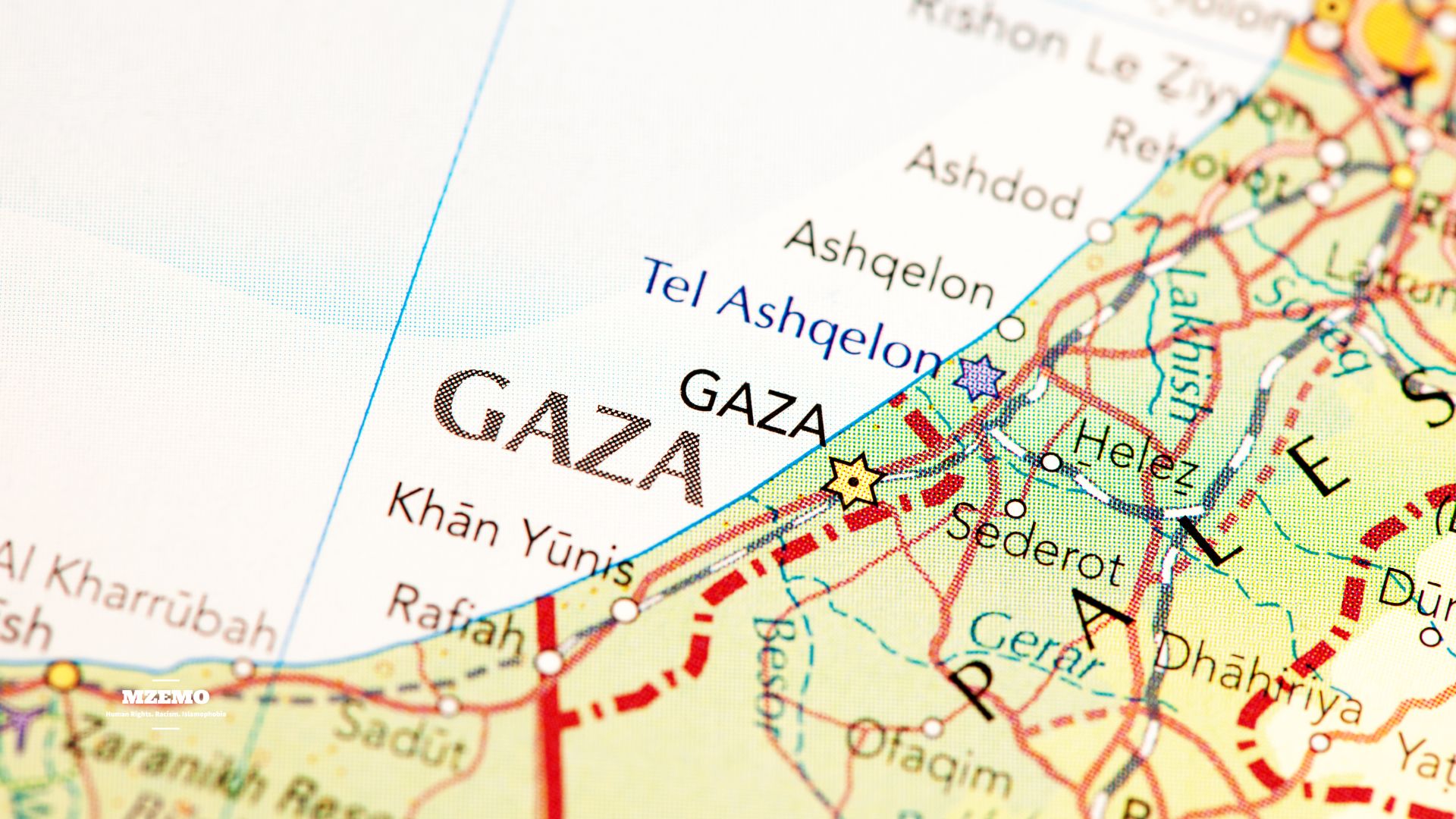
As Gaza’s hospitals ran out of oxygen and children continued to die of hunger, a new “Peace Plan” emerged from Washington. The US President Donald Trump’s 20-Point Gaza Plan was announced recently in late September 2025. It has promised to rebuild Gaza and bring “a new era of stability.” However, to many Palestinians and observers across the world, it sounded like something else: a blueprint to erase what remains of Gaza’s sovereignty. What was initially discussed with the Arab states as a cooperative humanitarian initiative was, by the time of its release, cleverly reshaped. It is rewritten to preserve occupation under a new label.
From Arab Consensus to American Control
Early drafts of a postwar Gaza plan were reportedly framed through consultations among Arab and Muslim nations. They emphasized three principles: Palestinian self-rule, unrestricted humanitarian access, and reconstruction without foreign trusteeship. Yet as negotiations evolved, the plan was absorbed by U.S. diplomacy and redrafted in a way that aligned with Israeli conditions rather than Arab consensus. Several diplomats confirmed that Washington’s version quietly removed any reference to Palestinian sovereignty, replacing it with phrases like “transitional governance” and “security oversight.”
Even before it was officially unveiled, Reuters reported growing unease among Arab delegations, who complained that the new text ignored their agreed-upon points and reflected Israel’s security agenda. Pakistan’s foreign minister stated openly that “Trump’s 20-Point Gaza Plan is not our plan.” The shift marked more than a diplomatic re-edit as it exposed the power imbalance shaping Gaza’s future.
The 20 Points: Promises and Omissions
Publicly, Trump’s 20-Point Gaza Plan claims to rest on four pillars: ceasefire, hostage release, reconstruction, and demilitarization, yet its deeper clauses reveal troubling gaps. There is no guarantee of Palestinian sovereignty, no timeline for Israeli withdrawal, and no provision for international accountability. Instead, it envisions Gaza’s future under external trusteeship, with reconstruction funds controlled by a multinational board led by Washington and oversight committees dominated by Israel and allied states.
Several points speak of creating “safe redevelopment corridors” and “security zones,” terms human rights experts warn could mask forced relocations and demographic engineering. The plan further ties aid to behavior clauses, conditions governance on foreign approval, and places border control under “temporary supervision,” a phrase that critics fear means indefinite control. Amnesty International cautioned that “reconstruction must not become a pretext for displacement or collective punishment.”
In essence, while the plan’s language of peace and rebuilding appeals to diplomacy, its structure embeds dependency and control. To rebuild Gaza without granting it freedom is, as one Palestinian analyst put it, “to rebuild the prison walls, just higher and cleaner.”
The Human Cost Hidden Behind Diplomacy
Behind every clause of this plan lies a humanitarian catastrophe. The World Health Organization confirms that more than half a million people in Gaza face famine-level hunger, and over 360 have already died from malnutrition. The UN’s humanitarian office says 80% of Gaza’s population now depends on aid that Israel continues to restrict. In this reality, talk of “redevelopment corridors” rings hollow. Gaza does not need trusteeship—it needs food, medicine, and an end to the siege.
On the streets of Rafah and Deir al-Balah, survivors of months of bombardment heard the plan’s announcement with disbelief. “They speak of building new homes,” one displaced teacher told a reporter, “but they won’t even let cement cross the border.” Another woman asked, “Who gives them the right to plan our lives while we bury our dead?” These voices reveal the heart of Gaza’s objection: no document signed abroad can substitute for the will of its people.
Resistance and Rejection
Hamas’s initial response to the plan was mixed. The group welcomed references to reconstruction and aid delivery but rejected disarmament and external trusteeship. “No peace built on surrender will last,” its spokesman said. Across Palestinian civil society, activists dismissed the plan as “occupation repackaged.” Hashtags like #NoTrusteeship and #GazaIsNotForSale flooded social media, uniting Gazans and diaspora voices in digital defiance.
Former U.S. diplomat Robert Malley, writing for Le Monde, described the plan as “a maze of ambiguities and potential pitfalls.” His analysis noted that the proposal’s vagueness is deliberate—creating space for powerful states to interpret its clauses to their advantage. It is a familiar strategy: promise reconstruction while ensuring dependency.
Reactions among Arab and Muslim nations were cautious and divided. The Arab League issued a restrained statement calling for further review, while countries like Algeria, Iran, and Pakistan warned that any plan lacking Palestinian representation was unacceptable. Meanwhile, Western governments praised the proposal as a “bold step toward stability.” For Gazans, these words offered little comfort. They have seen such language before in the Oslo Accords, the Road Map, and countless other documents that delivered control, not liberation.
International law offers a clear measure. The plan’s idea of trusteeship contradicts the principle of self-determination guaranteed by the UN Charter and multiple General Assembly resolutions. Legal scholars argue that placing Gaza under external administration without consent would constitute a new form of occupation. The International Court of Justice’s 2024 advisory opinion warned that “peace agreements cannot validate the continuation of unlawful control.” Trump’s plan, critics say, does precisely that.
What True Peace Would Look Like
A genuine peace framework would begin not with political engineering but with justice. It would:
- End the blockade entirely, allowing Gaza to trade and rebuild freely.
- Place reconstruction under Palestinian-led management, not foreign trusteeship.
- Hold accountable those responsible for war crimes and the starvation policy.
- Guarantee the right of return and compensation for the displaced.
- Empower Gaza’s people to elect their own representatives without external approval.
Anything less is not peace but an administrative occupation.
The Moral and Legal Test for the World
The 20-Point Plan is not a diplomatic breakthrough but a moral test. To accept it as written would mean endorsing a future where Gaza remains controlled by the same forces that destroyed it. It would normalize collective punishment under the banner of reform. And it would bury the core demand that Palestinians have made for decades: the right to decide their destiny.
Human Rights Watch, Amnesty International, and UN experts have all warned that Gaza’s crisis cannot be resolved through imposed governance. The path forward must restore dignity, not dependency. Yet, while the world debates corridors and committees, Gaza’s hospitals run without light, and its children die nameless in the dark.
The Bottom Line
Trump’s 20-Point Gaza Plan may speak the language of peace, but its structure carries the logic of control. For Gaza, peace cannot be built by those who silence its voice. True reconstruction will not come from Washington or Tel Aviv, but it will rise from the streets of Khan Yunis and the refugee camps that still believe in freedom.
The people of Gaza do not reject peace but subjugation disguised as diplomacy. Their message to the world remains clear: “We will rebuild, but on our own terms.” And until that right is honored, no plan, however polished, can claim the name of peace.
Featured
Global Sumud Flotilla Intercepted: Israel’s Naval Siege, Famine and Resistance
Published
3 days agoon
October 6, 2025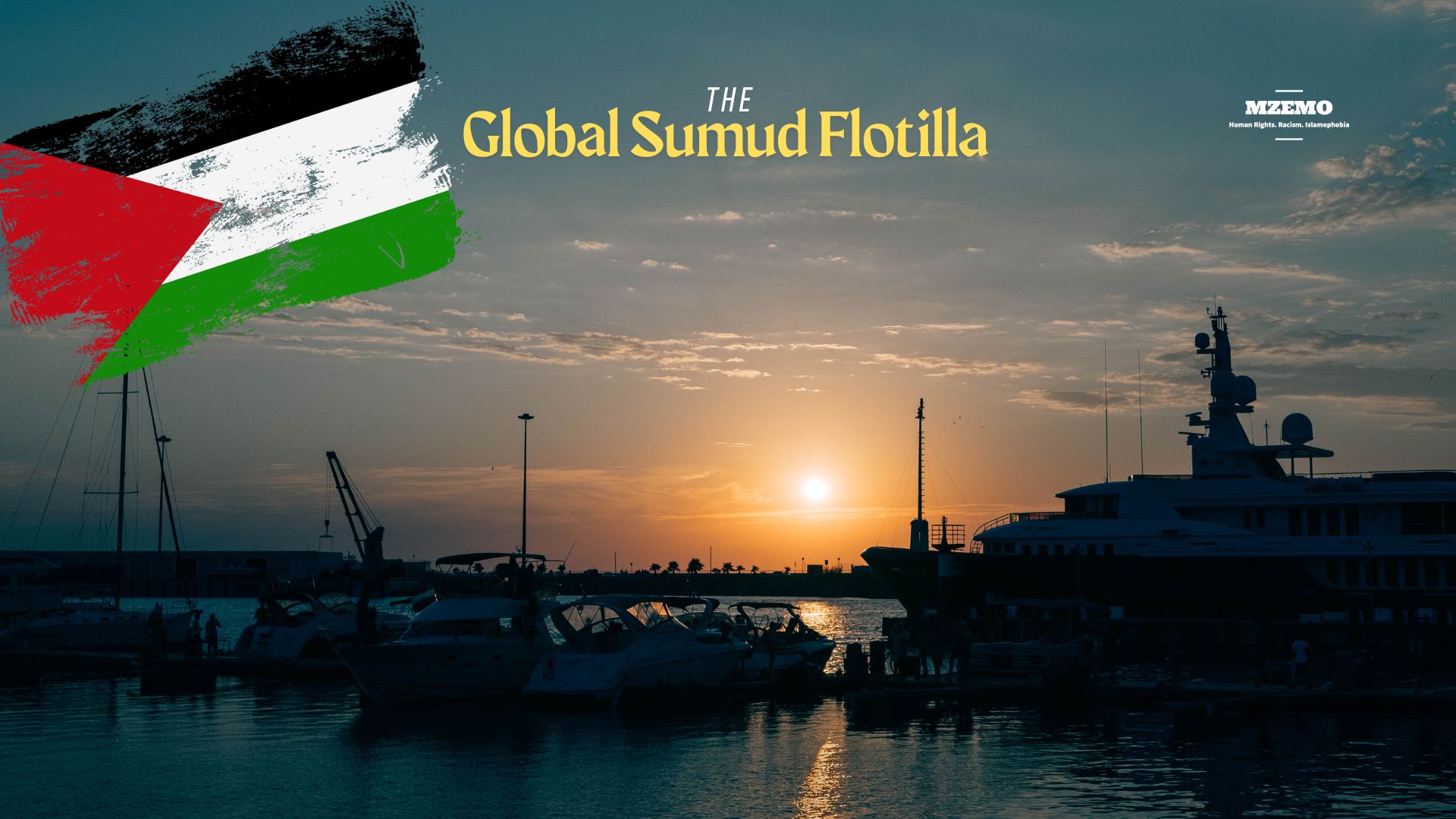
The Mediterranean dawn on 2nd October, 2025, was meant to carry a different story. For hundreds of activists aboard the Global Sumud Flotilla, including doctors, artists, parliamentarians, and volunteers from over 37 countries, it was a mission of a lifetime. Their ships carried medical supplies, food packets, and a message written in humanity’s oldest language: solidarity. However, as Israeli naval vessels surrounded them 40 nautical miles from the Gaza Strip, that message was silenced most brutally. Within hours, the flotilla had been seized, its passengers zip-tied and blindfolded, and its aid confiscated.
Israel’s interception of the Global Sumud Flotilla is not just a naval incident but another chapter in the long story of Gaza’s suffocation. In a land already starved by siege, famine, and bombardment, this act tightened the blockade around two million civilians who had endured what human rights organizations now recognize as a continuing genocide.
Gaza in Famine: A Manufactured Catastrophe
According to the World Health Organization, over half a million Palestinians are now living under confirmed famine conditions. Malnutrition has become a silent killer, claiming the lives of more than 360 Palestinians, including 130 children. The Integrated Food Security Phase Classification (IPC) places Gaza in Phase 5, which is the highest possible level of hunger emergency, categorized as Catastrophic. Gaza’s farms, bakeries, and water networks have been systematically destroyed, leaving families with little more than contaminated water and animal feed to survive.
The famine is not a natural consequence of war but a lethal weapon. Amnesty International has repeatedly stated that Israel is using starvation as a method of warfare, an act that meets the legal threshold for genocide.As per a report of Amnesty International published in October,
“Israel’s deliberate starvation of civilians is a war crime.”
Each blockade, each denied aid truck, and now each seized ship deepens this crime against humanity.
What is the Global Sumud Flotilla?
The flotilla, meaning steadfastness in Arabic, embodied the principle of Sumud, which means unshakable resistance. It consisted of more than 40 vessels and 500 international participants from 37 countries. Departing from ports across Europe and North Africa, it aimed to reach Gaza’s coast peacefully and symbolically challenge Israel’s naval siege. Among those on board were parliamentarians, humanitarian doctors, and activists, including climate advocate Greta Thunberg, united under one flag: human conscience.
Their mission was not to wage war, but to deliver aid and visibility. Yet as their ships neared Gaza, Israeli drones shadowed them, communications were jammed, and warning messages filled the airwaves. Finally came the interception.
The Interception: How the Siege Struck at Sea
Around midnight, Israeli commandos surrounded the final ship, Marinette, approximately 42.5 nautical miles off Gaza’s shore. Activists reported being forced to kneel for hours, zip-tied and beaten, as soldiers confiscated cameras and personal belongings. All contact was cut as the ships were redirected to Ashdod Port inside Israel. The Israeli military justified the action by claiming the flotilla violated a lawful blockade and that “no humanitarian aid was found aboard,” which is a statement disputed by multiple international witnesses.
More than 450 activists were detained, among them citizens of Spain, Italy, Turkey, South Africa, and the United States. Many were held without immediate consular access, with reports of inhumane treatment emerging within days. Amnesty International condemned the detentions as “an unlawful act of aggression” and a “deliberate effort to enforce collective punishment through starvation.”
Before communications were cut, Irish activist Tadhg Hickey recorded a final message: “We sail not just for Gaza’s survival, but for our own humanity. If silence is complicity, then to sail is resistance.” His words have since circulated across social media, embodying the flotilla’s spirit of nonviolent defiance.
Survivors deported to Turkey later described their ordeal. “We were treated like criminals for carrying food,” one volunteer said. “They zip-tied our wrists until they bled, but we’d do it again because Gaza is worth every risk.” Their testimonies echo the voices of thousands protesting globally after the interception, from London to Kuala Lumpur, demanding accountability and an end to the siege.
Law, Morality, and the Machinery of Blockade
The Israeli blockade, in place since 2007, has been condemned as illegal under international humanitarian law. The Fourth Geneva Convention forbids the collective punishment of civilians, and maritime law recognizes the right to deliver humanitarian aid in the face of mass suffering. Yet Israel continues to act with impunity, supported by global silence and diplomatic paralysis.
The United Nations Office of the High Commissioner for Human Rights (OHCHR) has warned that the blockade constitutes “a form of apartheid and starvation-based warfare.” Meanwhile, the UNRWA reports that 80% of Gaza’s population now depends on humanitarian aid for survival—aid that often never arrives.
Each intercepted vessel, carries a moral weight beyond its cargo. The Global Sumud Flotilla is more than a convoy; it was a reminder that humanity refuses to abandon Gaza to darkness. To criminalize compassion is to declare war on conscience itself.
Global Reactions and Outrage
Governments across the world have expressed alarm. Switzerland, Spain, and South Africa lodged formal protests, demanding explanations for the detention of their citizens. Turkish authorities arranged emergency flights to repatriate deported activists. Protests erupted in Paris, Istanbul, and Jakarta, as demonstrators carried placards reading, “Feeding Gaza is not a crime.”
Yet, in the corridors of power, condemnation remains cautious. Western governments have largely avoided direct criticism, framing the interception as a “security matter.” Meanwhile, humanitarian organizations, from Amnesty International to Human Rights Watch, have demanded that the blockade be lifted immediately and that the international community recognize the ongoing genocide.
The Broader Picture: Gaza’s Siege as Global Failure
The interception of the flotilla is not an isolated act, but the symptom of a global collapse of moral responsibility. While Gaza’s hospitals run without anesthesia and its children starve in makeshift tents, world leaders debate terminology instead of stopping the crime. Every intercepted aid convoy, every silenced activist, marks another day when humanity looked away.
The sea that once connected civilizations now separates the starving from salvation. Israel’s naval blockade is not a shield but a weapon. It starves, isolates, and erases. And yet, every time someone dares to sail toward Gaza, the truth resurfaces: even in the face of warships, the human spirit remains unsinkable.
However, the Global Sumud Flotilla did not fail, but it exposed the blockade for what it truly is: an act of cruelty sustained by silence. It reminded the world that solidarity still sails, that compassion still defies orders, and that Gaza’s struggle is humanity’s test.
Every intercepted ship tells the same story: that courage is contagious, that empathy is rebellion, and that the people of Gaza are not forgotten. The world may build walls of steel and propaganda, but the sea remembers those who dared to cross it—for justice, for life, and for Gaza.
Featured
If Law Still Means Anything: What the UN Genocide Finding Demands Next
Published
2 weeks agoon
September 28, 2025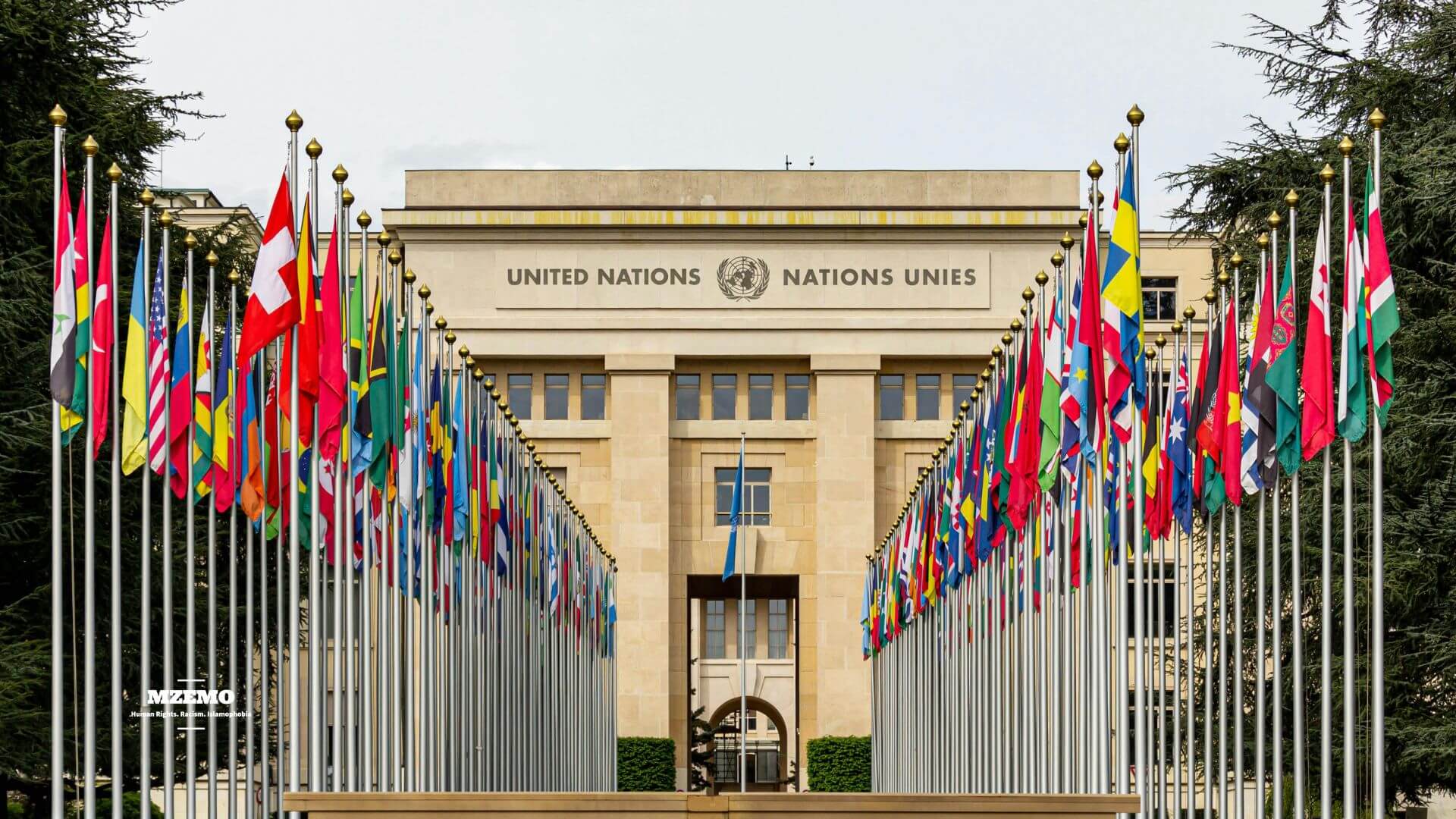
A mother in Gaza scrolls past a headline on a cracked smartphone: “UN inquiry finds genocide.” The generator coughs once and dies. In the quiet that follows, the question is small and sharp: If law still means anything, what happens now?
What does the Finding Mean?
The UN Independent International Commission of Inquiry (CoI) concluded that Israel has committed genocide in Gaza. It has created conditions meant to destroy life. This is not a social media label but a formal UN investigation using the standard of “reasonable grounds to conclude.” It is not a criminal verdict that belongs to courts, but it triggers duties for states and institutions that signed up to prevent and punish genocide.
The findings sit alongside the International Court of Justice (ICJ) provisional measures from January, March, and May 2024 ordering Israel to prevent genocidal acts while enabling humanitarian aid. These orders are legally binding and not just a piece of advice.
What States Must Do Now?
The Genocide Convention creates a duty for every state to prevent and punish genocide wherever there is a serious risk. After a UN genocide finding, the excuses thin out. Here is what action looks like in the real world:
1) Stop Feeding the Fire
Suspend weapons transfers, ammunition, and dual-use items that risk enabling unlawful attacks. Close loopholes in export licenses and re-exports. This applies first to Israel’s closest backers, including the United States and European states. Continuing diplomatic cover, like the sixth U.S. veto of a ceasefire, does not erase responsibility, but it deepens it.
2) Force Open the Lifelines
Use leverage so that aid, fuel, and medical supplies may move now, especially to the north. De politicize access and back neutral monitoring. Protect UNRWA shelters that have been hit again and again.
3) Back the Courts
Cooperate with the ICJ as a state responsibility and the International Criminal Court as an individual responsibility. Preserve and share evidence. If arrest warrants are issued, assist rather than obstruct.
4) Tell the Truth at Home
Launch transparent parliamentary reviews of your government’s role. Publish what was sold, licensed, trained, or shared during this war, and what will stop today.
What Must Change on the Ground?
Law only matters if it touches the day, and in Gaza, that day looks like this:
A Ceasefire that actually holds. Not a pause or a window but a complete halt to bombing that lets ambulances move, families sleep, and aid surge without fear. Moreover, reopening and securing corridors, including the northern ones, where hunger is worst, is a must-have. Restore fuel for hospitals, bakeries, water desalination, and sewage pumps. End the ritual of “approved” lists that starve clinics of surgical kits.
Protect people where they stand by stopping demolitions that erase neighborhoods and block return. Demine unexploded ordnance so children can walk to water without losing limbs. Shield health care from such attacks. Let families find the missing and bury the dead while supporting DNA identification, power labs, and safe access to cemeteries.
“Human dignity is not a luxury.”
The Ledgers that Don’t Lie
Numbers are not feelings, but they make denial harder. The ICJ told Israel to prevent genocidal acts and enable aid, which was a binding order as discussed earlier. It should have been taken seriously. UNRWA also reported multiple shelters struck within days in mid-September, killing and injuring people who fled for safety.
Satellite analysis for the UN found roughly three-quarters of structures in Gaza damaged or destroyed by now, with Gaza City suffering fresh tower demolitions later in the month. We do not list numbers to numb you, but rather to document a few so that history cannot pretend it did not know.
Accountability that Counts
Real accountability is a sequence and not just a slogan. It is the responsibility of states to enforce existing orders of the ICJ. If the Security Council blocks action, take the case to the UN General Assembly under the Uniting for Peace resolution to recommend collective measures, including the suspension of arms, guarantees of aid access, and reliable monitoring.
When it comes to individual accountability as per the ICC rulings, one should support investigations into war crimes, crimes against humanity, and genocide. Share satellite imagery, export records, and military-aid timelines. Do not host or welcome officials under credible suspicion and prepare to act on arrest warrants when they come.
Application of universal jurisdiction is compulsory, including travel bans and asset freezes on specific officials and entities tied to unlawful attacks. Ensure reparations and return while documenting destroyed homes, clinics, and schools. The right to safe, voluntary return cannot be bombed out of existence.
So, if law still means anything, it means ceasefire, access, protection, and true justice. It means the phones in Gaza do more than carry bad news. When the law works, a generator coughs back to life, a surgeon’s lamp stays on, and a shelter door stays standing through the night.
Trending
-

 Featured2 years ago
Featured2 years agoWorld passively watching as Israel perpetrates open-ended massacre in Gaza
-

 Featured3 years ago
Featured3 years agoArgentina wins the World Cup; are there any other winners?
-

 Featured2 years ago
Featured2 years agoIsrael is Hiding Crucial Demographic Facts About Palestinians
-

 Featured4 years ago
Featured4 years agoHistory of the Ottoman Empire
-

 Featured3 years ago
Featured3 years agoChristian militia infiltrate Lebanon
-

 Featured5 years ago
Featured5 years ago“Do Not Waste Water Even If You Were at a Running Stream” Prophet Muhammad
-

 Featured2 years ago
Featured2 years agoMuhammed: The Greatest Man to walk on Earth
-

 Featured3 years ago
Featured3 years agoWorld Leaders Remain Silent Over Human Rights Violations in the UAE



